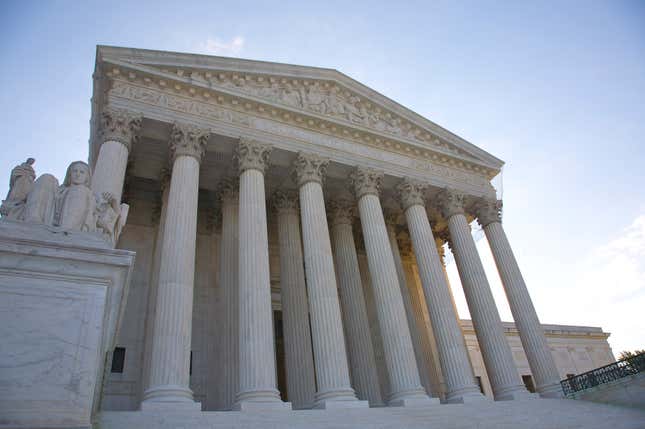
Thursday, the Supreme Court ruled that Congress can continue to exclude Puerto Rican residents from a federal program that assists elderly and low-income disabled people. The Social Security Income program, known as SSI, was established in 1972 to provide minimum income for adults in need who are over 65, blind or disabled.
The program was exclusively available only to residents living in the United States. American citizens living in Puerto Rico and other territories couldn’t participate in the program. The court ruled 8-1 that Congress can prohibit Supplemental Income Security benefits to Puerto Rico residents since they don’t pay all federal taxes.
The crux of the issue centered on whether the due process clause of the Fifth Amendment to the U.S. Constitution required Congress to extend SSI benefits to Puerto Rico. Puerto Rico has been a U.S. territory since the 1898 Spanish-American War and its residents are U.S. citizens.
However, they cannot vote for president or representation in Congress. They also do not pay federal income tax. The decision renounces the welfare benefits to around 300,000 people on who might have qualified. The federal government stated that an expansion covering Puerto Rico would have cost $2 billion a year.
Justice Sonia Sotomayor, one of the court’s only three liberals—and whose parents are from Puerto Rico—dissented. “In my view, there is no rational basis for Congress to treat needy citizens living anywhere in the United States so differently from others,” she wrote. “To hold otherwise, as the Court does, is irrational and antithetical to the very nature of the SSI program and the equal protection of citizens guaranteed by the Constitution.”
The Supreme Court has been fundamental in defining the legal status of Puerto Ricans. This dates back to a series of rulings more than a century ago called the Insular Cases. Those rulings sanctioned the concept that the people of newly acquired U.S. territories could receive different treatment than citizens living in U.S. states.

